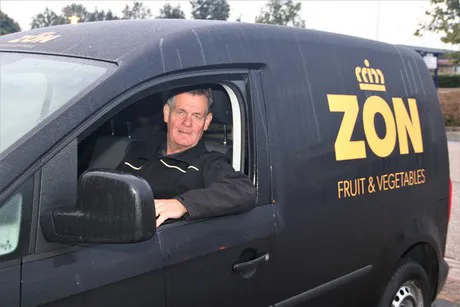Frans Lommen is a Senior Certification Specialist at the Dutch cooperative ZON. The greenhouse vegetable season is drawing to a close in that country. There are a few exceptions. Some growers cultivate lit tomatoes year-round. ZON magazine interviewed Frans.

Frans Lommen
What does a Certification Specialist's typical working day look like?
"Very generally-speaking, I inspect products. I do so according to the relevant specifications, guidelines, and client demand. I do inspections at ZON. But, mostly I inspect products at the grower, in the field. I am also their point of contact. I advise mainly growers about quality too."
"As ZON inspectors, we must ensure products are inspected and counted. We must also ready them for sale at auction. This is mostly done in the morning or evening, except for the morning supply. Sometimes buyers have complaints. If the product is still at ZON, we will assess the complaint. We will then determine what is to happen to the batch. This decision is made in consultation with growers, buyers, and sellers."
"The introduction of tablets and the rise of WhatsApp are positive developments. We use these to forward photos. As inspectors, we deal with many administrative processes. Digitization has helped. Inspection meetings are also often organized in the evenings. These are for ZON farmers, often by product group."
The Dutch supply of greenhouse vegetables is coming to an end. What was your experience of the season?
"It was a season with peaks and troughs. The extremely hot, dry weather caused a lot of problems for growers. They had issues with viruses and insects, like lice, whiteflies, tomato leafminers, and thrips. Leeks, in particular, were targeted by thrips. This was the case last year too. The greenhouses had various problems with insects."
"Many problems were encountered in tomato cultivation. The hot weather caused these. We are currently dealing with this. The quality is not always good. There are, for instance, hollow fruit and inferior cluster structure."
"Farmers also had to contend with staff shortages this season. The high turnover means that the laborers sometimes lack the right knowledge. They do not know how to handle the product - during the growth period as well as during harvesting. You can cause considerable damage to, for example, bell peppers. These must be cut off correctly. They must also be laid in the box, not thrown in."
The first Spanish products - cucumbers - are coming into the auction house. How do their quality and freshness fare, despite the long journey?
"This product was harvested, at most, four days ago. They are already packaged once they reach ZON. But their quality and freshness are good. If a quality issue arises, we communicate with Piet Crienen -'our man in Spain'. We send him an inspection report and photos."
"Obviously, (Auction Sales Manager) Els van Herpen is also involved in this. This great partnership always finds a solution. Staff and clients/buyers are pleased with this initiative."
Are there quality differences compared to the Dutch products?
"In general, the Spanish products are good. There are a few positive differences. Spanish bell peppers never have peel discoloration. They are always of good color. You also seldom see stalk rot with these bell peppers. This is because the air in Spain is dry."
"Spanish courgettes are of excellent quality. This product is cultivated in tunnels in Spain. They suffer less damage from, among other factors, the weather. Dutch courgettes do, however, glisten more. Perhaps due to the 'ZON pride'."
Do you carry out extra checks or consider distinctive characteristics with Spanish products?
"We inspect them in the same way as we would Dutch products. They must be of high quality - that is beyond dispute. This rule applies to both Spanish and Dutch products."
Source: ZON Magazine
